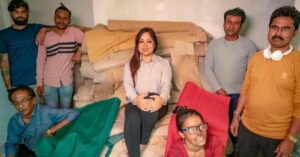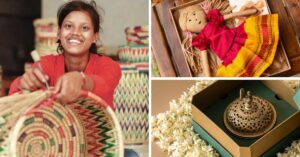Grandpa’s Struggles Moved This Engineer to Help 2200 Small Businesses Reach US & Japan
Engineer Maneet Gohil recalls why he quit his job to launch Lal10, a startup that works with creative manufacturers and MSMEs to help them digitise their physical inventories and sell their handiwork in international markets.
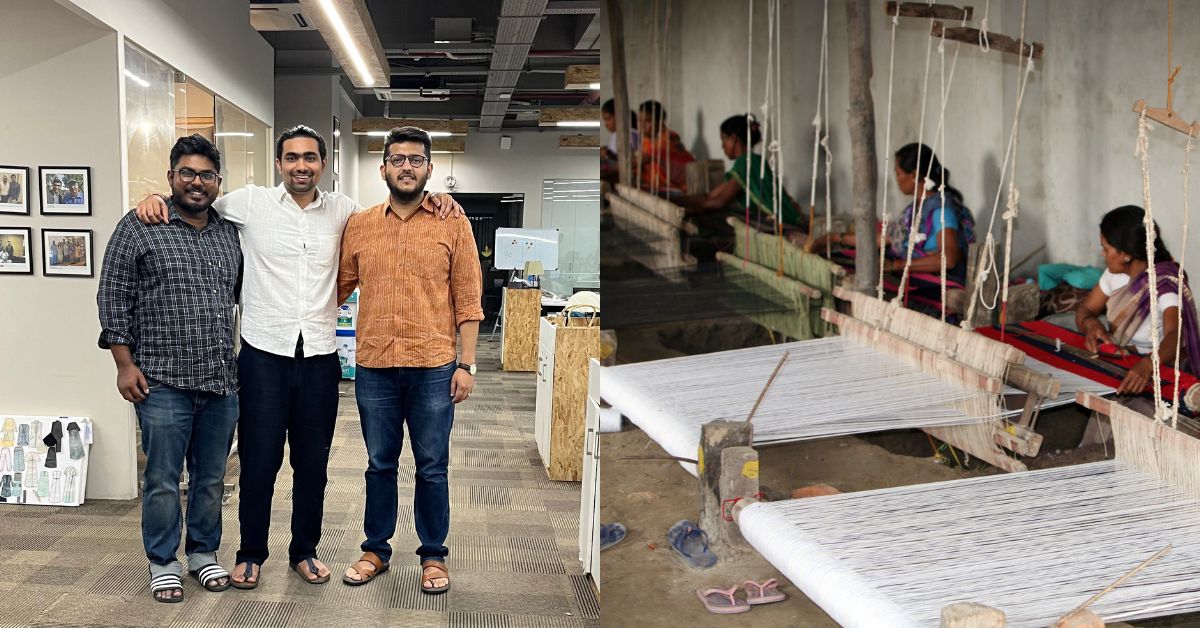
Maneet Gohil recalls that his inspiration growing up was his grandfather, a micro-entrepreneur who ran a leather footwear factory in Jalgaon, Maharashtra. On the outside, the business seemed successful, earning a turnover of Rs 3-4 crore.
“But despite managing to save Rs 3-4 lakh every month, he wasn’t financially stable,” Maneet says. “He would end up spending his savings on inventory for the next month.”
Owing to this instability, Maneet’s father took up engineering to earn more livelihood, and when Maneet grew up, he followed.
He pursued a Bachelor’s engineering degree and followed it up with a PG Diploma in Industrial Management. The 33-year-old started working with Flipkart. Here, the idea of working for rural MSMEs struck him for the first time.
“As I worked at Flipkart, I realised that my soul wasn’t into this. I wanted to do something like my grandfather,” he says, adding that his grandfather’s struggles to make ends meet even with such a large business had plagued him for years.
“I decided to go around the country and see what problems MSMEs actually face.”
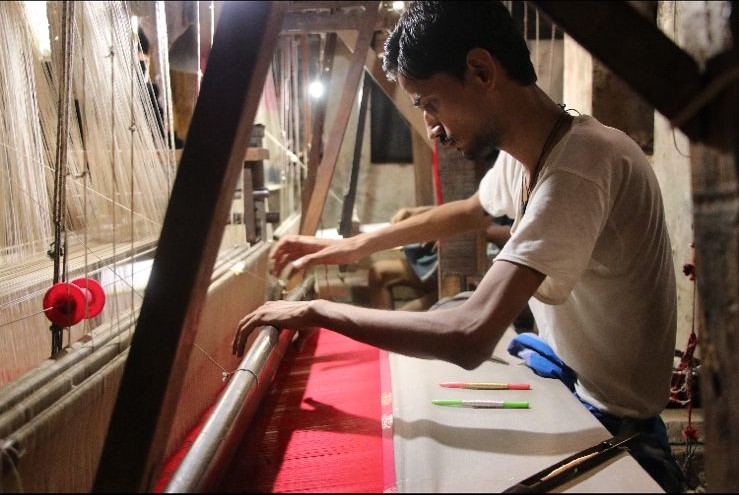
In 2017, Maneet and his friends Sanchit Govil and Albin Jose quit their jobs and spent almost a year travelling across the country and meeting MSMEs. They travelled to 18 states and met around 6,000 people, exhausting all their savings, he says.
“It was an extremely eye-opening trip for us. We were able to see problems faced by those in creative manufacturing. India has an export production of crafts of about $3.5 billion per annum currently, which comes from a few cities like Moradabad, Coimbatore, Saharanpur, Panipat and Tirupur. However, the production appetite in the country is $160 billion,” he explains.
Bringing ‘light’
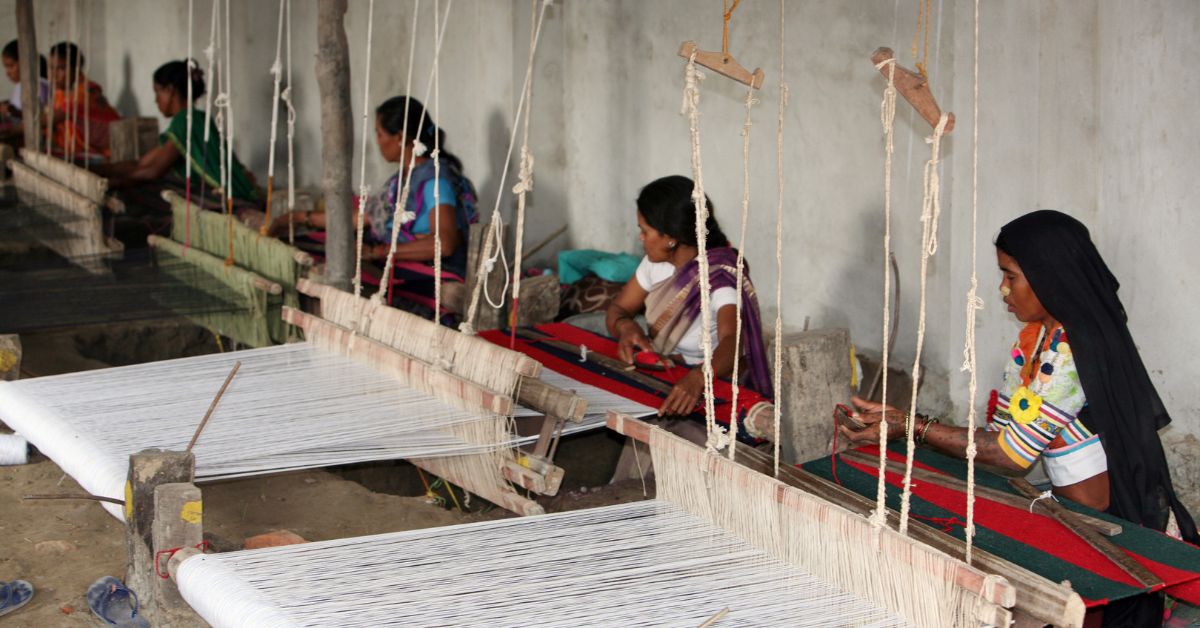
As the trio went around, they zeroed in on three problems — access to markets, raw material sourcing, and lack of financing or loans.
“The sector is huge, with 1.2 million small and micro entrepreneurs. Yet, only MSMEs in six places in the country are flourishing. Why can’t a Bhagalpur or a Maheshwar become a manufacturing hub?” Maneet asks.
“The major problems we identified was that these manufacturers don’t get access to markets. They are dependent on selling locally or at exhibitions. They don’t know how to sell to foreign markets. They can use the same material they use for sarees to make curtains, bed sheets, table linen etc.”
They also realised that the supply chain is a huge problem.
“Raw material sourcing is very difficult. Usually, good quality comes in huge quantities, which a small manufacturer can’t purchase. Another issue is that even with a good throughput and production, like my grandfather’s, manufacturers are unable to sustain. This is because of lack of financing. No bank or NBFC is willing to give loans,” he adds.
It was these learnings that gave shape to the enterprise Lal10, which Maneet launched with Jose and Govil as co-founders in 2017.
Lal10 is a B2B startup for creative manufacturers, who use the ‘Lal10 Karigar’ app designed by their team to digitise their physical inventories. The name is a play on lalten or lantern, and Maneet says it aligns with their aim to “bring light in the lives” of manufacturers.
Presently, the startup works with 2,200 MSMEs across Odisha, West Bengal, Assam, Manipur, Gujarat, Rajasthan, Madhya Pradesh and Telangana. Maneet says the companies export their products to buyers in the Middle East, USA, Japan and Europe. They are on track to achieving a revenue run rate of $100 million in the next year, he adds.
Lal10 sells home furnishings like curtains, bedsheets, carpets, apparel for men, women and children, and traditional Indian prints.
“We are creating a systemic change, by enabling Tier – II, III, IV to become ‘export-surplus’ from India. We are enabling Pochampally, Bhagalpur, Amroha, Bhuj, Phulia to become the next Panipat of our country and unleash this large market opportunity.”
He continues, “Lal10 Karigar, our supply-side mobile app, helps manufacturers gain skills to curate products of contemporary designs for global markets, digitise inventories, and catalogue to create web stores on the Lal10 platform in 10 minutes. They can also access raw materials directly from factories or reelers, and get working capital at reasonable interest rates.”
Maneet says Lal10 also helps these manufacturers get loans. “Since we have details of the orders and sales by each manufacturer, they can show this to any MFI or NBFC to get credit,” he explains.
For textile manufacturers like Mohsin in Delhi who practices block printing, the company has helped increase his sales.
“My business was good earlier, but now it has become excellent. My sales per month have more than tripled, from Rs 1.5-2 lakh to almost Rs 5-7 lakh. We now focus on giving orders on time, as well as quality and finishing. Employees working at my unit are also happy as they have work all the time,” says Mohsin.
Meanwhile, Maneet says Lal10 has 102 people in their office in Noida. Additionally, they have satellite offices and a point person at each centre.
“The point person works with the manufacturers in that region. We skill them and teach them our technology. They get enquiries and convey them to the manufacturers. Our idea is that we don’t want the next generation to leave manufacturing like my father, or other young people we met,” he notes, adding that they earn their revenue through mark-ups. If you found our stories insightful, informative, or even just enjoyable, we invite you to consider making a voluntary payment to support the work we do at The Better India. Your contribution helps us continue producing quality content that educates, inspires, and drives positive change. Choose one of the payment options below for your contribution- By paying for the stories you value, you directly contribute to sustaining our efforts focused on making a difference in the world. Together, let’s ensure that impactful stories continue to be told and shared, enriching lives and communities alike. Thank you for your support. Here are some frequently asked questions you might find helpful to know why you are contributing?

The founders of Lal10 aim to be the “Alibaba of Indian MSMEs”, and want to increase their supply chain from 2,200 to 12,500 this year.
Edited by Divya Sethu
This story made me
-
97
-
121
-
89
-
167





